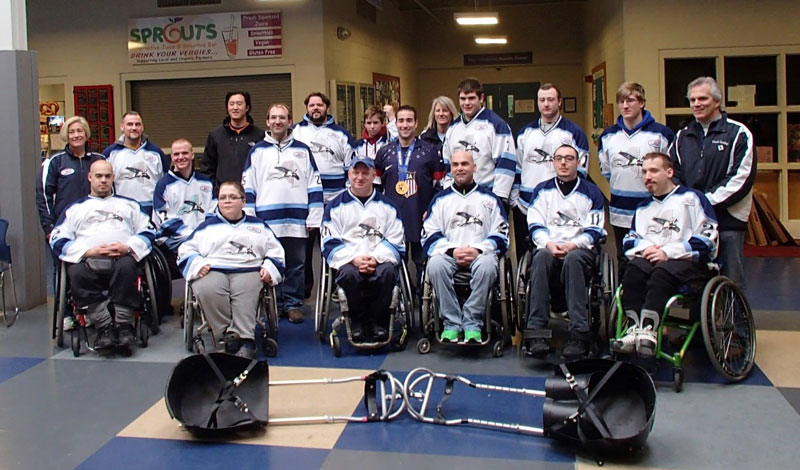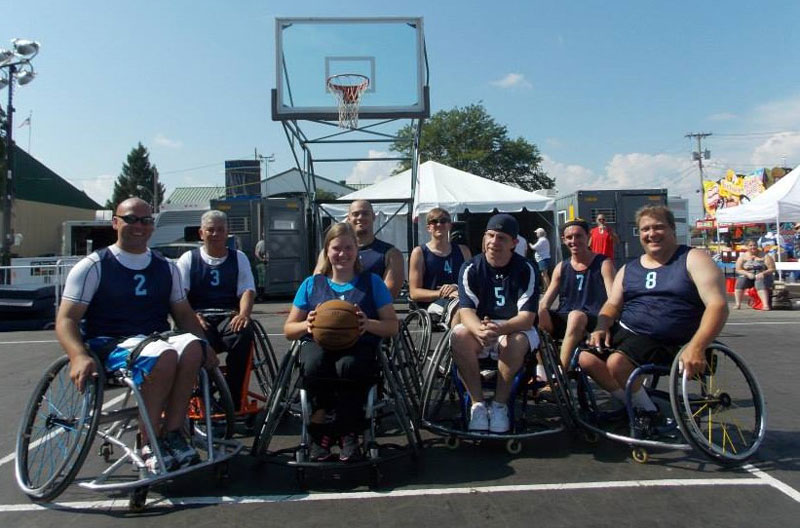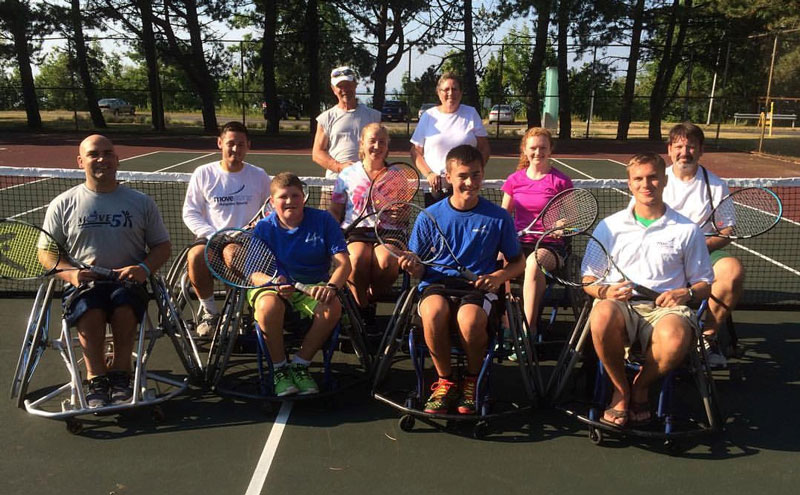How am I going to play sports now? That is the question I was asking myself after my injury at 29 years old. After 26 years of being a recreational athlete, I was afraid of the answer.
My name is Greg Callen and I am a diagnosed T12 paraplegic. It was on August 28, 2005 in Saratoga, NY that I was celebrating life with family and friends. Unfortunately, I "blacked out" in a bathroom from too much alcohol and no food in my system. After I awoke and exited the bathroom, I mistakenly walked out on a balcony that had no light or railing. Trying to find my friends had unfortunately led me to the opposite side of the house, where I inadvertently walked off the roof, landing on my feet but bursting vertebra in my back at thoracic level 12 and lumbar level 1.
That was when my new life began.
Over the next several months, I performed the basics of rehab, progressed to outpatient therapy and then back to a professional career. During those months, I was not interested in athletics or wellness — I had set up too many mental barriers, too many reasons not to care. Slowly but surely, I began making decisions that would reintegrate myself with family, friends, and my community nine months into my recovery. I took some of those decisions further and felt I needed to create a center or facility where individuals with injuries could pursue wellness, just like me. The journey to accomplish this was long but rewarding.
Any business startup is a process of learning, failing, reorganizing, and trying again...until something works. After it works, the program can then be replicated with another program. For example, Move Along's most successful and sustainable model is with our CNY Sled Hockey Flyers program. Therefore, each of our other programs will be using that model for structure and success. Barriers to success come in many forms: financial, personnel, personal, organization, resources. My path to starting Move Along faced each of these, and still facing some of the same. Overcoming them is still a decision, so each time roadblocks arise, you have to find a different path, navigate the road with new help or a new resource, and find success, because that success you desire is attainable!

My first idea was to open a medical fitness center, combining the knowledge of clinical staff to educate and engage individuals in fitness exercise adapted to their ability level. Although this model has succeeded in practices I visited in Detroit, I became discouraged by the clinicians in my region to gravitate to and help build such a center.
After that, I turned to adaptive sports and programs that enabled both injured and able-bodied persons the opportunity to compete against or with one another in sport. My path brought me to the Syracuse Flyers, a small group of individuals playing wheelchair basketball once a week. Soon after participating, I went back to my board members and asked if they would consider allowing me to pursue an entity name change — a board of directors revision to enable growth and development of other sport programs beyond the existing wheelchair basketball program they provided.

In 2009, Move Along Adaptive Sports was founded. Today, Move Along has programming in sledge hockey, handcycling, wheelchair tennis, aquatics, horsemanship, and of course, wheelchair basketball. The organization has its sights set on adding other sports in the near future as well as partnerships with organizations that currently sustain these programs.

Through my personal life and business ventures, I've found my passion in athletics to be twofold: focusing on physical well-being and social interaction. Both of these are vital to overall wellness. As I get older, I always reflect on my life as a youth, teenager, young adult, and the time I spent achieving goals and obtaining skills through coaches and mentors in athletics. It helps me put things in perspective and hone in on those passions.
Today, the establishment and growth of Move Along affords individuals the ability to reintegrate after a traumatic injury like I did, finding fulfillment in participating or even building their own program to channel their skills professionally. Both recreational and professional options allow persons who may or may not have gravitated to sports prior to trauma to become involved in something they can find value in, helping others to persevere.
How will you find the recreational resources that you need? When and how will you attach yourself to a passion that drives you to live the best life you can? The truth is, you are your best advocate! Communication is your biggest asset!
I have some advice for such passionate individuals: Therapists (physical, occupation, and cognitive) are a great resource and should be helpful in guiding you to a local organization or advocate that assists individuals in need. Recreational therapists will have knowledge of arts, recreation, and adaptive sports if you have them available in your area.
Here are a few examples of websites that can be of value:
Find your wellness through sport and recreation. It's the interaction that fuels the mind that produces an impactful outcome.
Attitude is Altitude — Greg Callen
About the Author
Greg Callen is the successful Assistant Vice President of Sales for RIVA Payments and the founder of Move Along, Inc., an organization set on bringing together the Central New York residents with disabilities. After an injury that left him paralyzed from the waist down, Greg focused his energies on athletics, work, and building a successful career while maintaining a passion for those who are also dealing with the struggles of being handicapped. Basketball, horseback riding, hand cycling, kayaking, tennis, touch football, and snowmobiling are just a few of the many pastimes Greg enjoys outside of the office.
Greg's ride is a Quickie 7R
Most of the stories here on Live Quickie were submitted by readers. Do you have a story to tell? We'd love to hear it. Submit your story here.